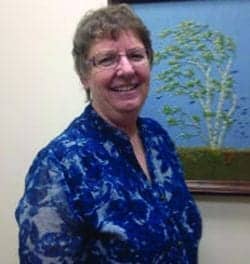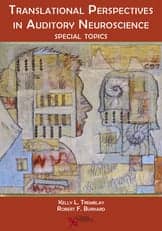In order to make hearing care accessible for people on low incomes, the Hear the World Foundation is working closely with the South Africa-based, e-health start-up HearX by mHealth Studio, which offers an app for hearing screenings. With the help of local partners, the goal is to perform hearing tests on 10,000 children by the start of 2019.
In South Africa, hearing screenings for schoolchildren have been required by law since 2012; children with untreated hearing loss have difficulties learning to speak and, as a result, may struggle in school. In regions where audiological equipment and trained experts are scarce, however, implementing hearing screenings can be arduous.
HearX by mHealth Studio is striving to improve this situation: its app hearScreen, developed at the University of Pretoria, is designed to make hearing screenings as simple as possible. It’s designed to help tests be performed without equipment or specialized audiological knowledge. This can not only help improve access to hearing care, but reportedly help to reduce screening costs by 50 to 70%.

The Hear the World Foundation is working closely with the South Africa-based, e-health start-up HearX by mHealth Studio, which offers an app for hearing screenings. With the help of local partners, the goal is to perform hearing tests on 10,000 children by the start of 2019.
Screening in South Africa’s Townships
The Hear the World Foundation is supporting this project by providing funds and hearing aids. The app has been in use in two low-income South African townships since July 2017: Tembisa, located near Johannesburg, and Khayelitsha, in Cape Town. The project is also partnered by the University of Pretoria and the Carel du Toit Centre, a pediatric audiology center that is based in Cape Town and also supported by the Hear the World Foundation.
Screening by Locals—No Audiological Knowledge Needed
The hearing tests are carried out by locals, who, after one short training session, should be able to utilize the hearScreen app and headphones to perform screenings. Afterwards, the results are uploaded to the Cloud for further analysis.
Generally, the screenings only make sense if combined with the necessary hearing care, so the project team is also involved in arranging subsequent care. If a child is found to have a problem, a more intensive test is carried out with the hearScreen app, then he or she is referred to a local audiologist. Although a state healthcare program provides any necessary hearing aids, there are times when none are available. In the meantime, project partners lend hearing aids, which are immediately calibrated.

The Hear the World Foundation is working closely with the South Africa-based, e-health start-up HearX by mHealth Studio, which offers an app for hearing screenings. With the help of local partners, the goal is to perform hearing tests on 10,000 children by the start of 2019.
Sustainable Solutions for Children and Communities
Stefan Launer, vice president of science & technology at Sonova, and his son, spent around two weeks as Hear the World volunteers in South Africa. Together with local partners, they were able to screen about 50 children per day. Alongside the preparation and planning of the project, he was impressed by the commitment and enthusiasm with which all participants went about their work.
“The project not only has a huge impact on many children and their families, but also on the community: it creates jobs, imparts knowledge, and opens up new perspectives,” said Launer.
Future Research
Aiming for long-term success beyond the two regions mentioned, the Carel du Toit team, in cooperation with Professor De Wet Swanepol from the University of Pretoria, are also systematically gathering research results from the project. They hope this will enable them to convince the South African government of the project’s importance and of the major role it can play in helping to achieve age-appropriate child development.

The Hear the World Foundation is working closely with the South Africa-based, e-health start-up HearX by mHealth Studio, which offers an app for hearing screenings. With the help of local partners, the goal is to perform hearing tests on 10,000 children by the start of 2019.
Founded in 2006 by Sonova, a provider of hearing solutions, the Hear the World Foundation supports disadvantaged people with hearing loss around the world and gets involved in hearing loss prevention. The foundation focuses particularly on projects for children with hearing loss, enabling them to develop to their fullest potential. Since its establishment, the nonprofit Swiss foundation has supported over 80 projects in 39 countries with funding, hearing aid technology, and expertise. More than 100 high-profile ambassadors, such as Bryan Adams, Cindy Crawford, Plácido Domingo, Annie Lennox, and Sting support Hear the World as ambassadors for conscious hearing. www.hear-the-world.com
Source: Hear the World Foundation
Images: Hear the World Foundation





